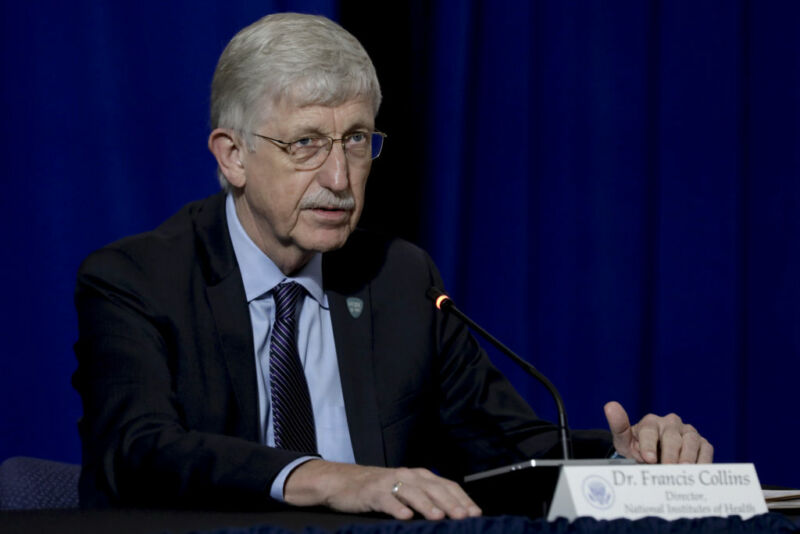That will leave a mark —
National Institutes of Health disses FDA on plasma as COVID treatment
Internal dissent about the FDA's Emergency Use Authorization spills out in public.

Last week, the FDA announced that it was issuing an emergency use authorization for the treatment of COVID-19: the blood plasma of people who have recovered from a COVID-19 infection. But controversy quickly engulfed that announcement after it became clear that the head of the FDA had exaggerated the effectiveness of the treatment when explaining why it was being approved.
The FDA's salesmanship of blood plasma—which is a treatment of unknown efficacy—was taken as evidence that the emergency use authorization was the product of political pressure exerted by a Trump administration anxious to have some good news to promote its reelection campaign. Additionally, health experts at the National Institute of Health (NIH) didn't agree with the decision and had tried to block it a week ago. Now, the NIH may be striking back, releasing a document that basically says it's looked at the evidence and is not convinced.
Not so fast
While the CDC and FDA have led some aspects of the coronavirus response, the NIH is the employer of Anthony Fauci and the largest biomedical research organization in the world. So it certainly has things to say about how to handle the pandemic, and it maintains a COVID-19 Treatment Guidelines Panel. This, as its name implies, maintains guidelines on different aspects of care for the disease. So, given that the FDA has just given an Emergency Use Authorization to a treatment, it essentially forced the NIH to respond in some way.
And the NIH's response is both accurate and forceful. "There are currently no data from well-controlled, adequately powered randomized clinical trials that demonstrate the efficacy and safety of convalescent plasma for the treatment of COVID-19," the document says. The document makes clear that the Panel has reached that conclusion by examining all the published data as well as a number of unpublished studies. It contrasts that with the FDA, which based its decision on a subset of the population enrolled in a single study that lacked a control arm.
Even with that carefully selected population, the Panel notes, the analysis "found no difference in 7-day survival overall." It was only when groups were split out based on the amount of anti-SARS-CoV-2 antibodies present that a small difference emerged.
But the NIH remains unimpressed, noting that, without randomization and a control group, other factors could have accounted for this difference. And, in any case, it's clear that the levels of useful antibodies present vary from donor to donor.
The Panel sums up the situation bluntly. "There are insufficient data to recommend either for or against the use of convalescent plasma for the treatment of COVID-19," it concludes, before going on to say "Convalescent plasma should not be considered standard of care for the treatment of patients with COVID-19." In fact, the document raises the possibility that using antibodies from other sources could dampen the production of the COVID-19 patient's own antibodies and thus limit future protections.
Is this a warning?
It's important to emphasize that everything the NIH's document says is accurate. There aren't any large, well-designed studies of the efficacy of post-infection plasma as a treatment. And the small studies cited by the FDA in its emergency use authorization don't indicate that it's an effective therapy. So, while doctors may be authorized to use it, it certainly shouldn't be viewed as the standard of care. Nevertheless, the NIH's blunt dismissal of the evidence presented by the FDA to support its decision is striking.
Given that members of the NIH's leadership, including its director Francis Collins, had reportedly attempted to put the FDA's authorization on hold, it's very tempting to speculate that this is a way of calling out the FDA for making a decision with limited scientific support. It also comes on the heels of a former NIH director, Harold Varmus, calling out the Centers for Disease Control for similar reasons. It's not clear, however, whether these public criticisms will be enough to keep these agencies focused on scientific data as the election grows ever closer.
Via PaApNews